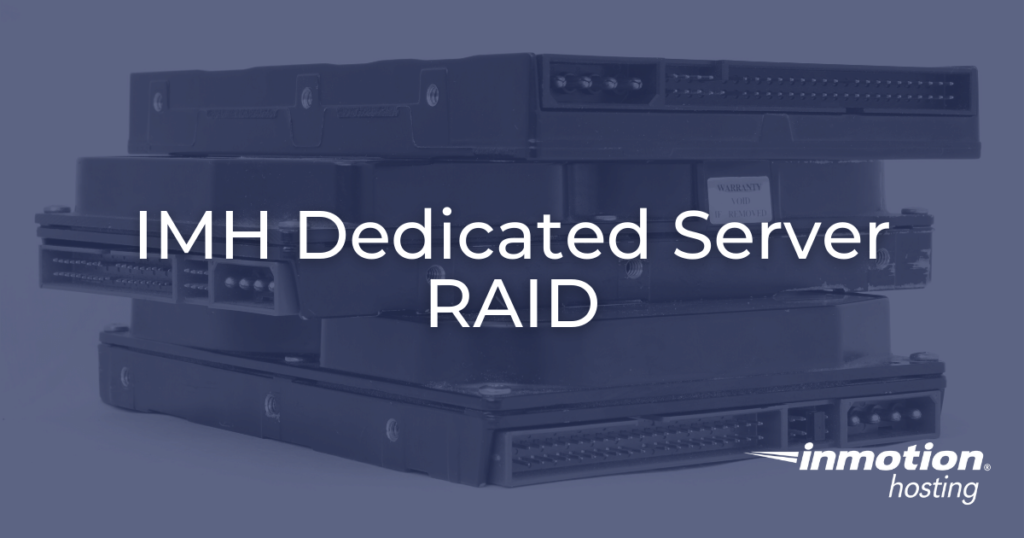
A key piece of technology found in most modern web hosting environments is a Redundant Array of Independent Disks, otherwise known as a RAID system. These systems function by storing independent, redundant copies of important system data.There are two main types of RAID, hardware and software. In this article we will discuss software RAID and explore how it can benefit your dedicated server web hosting experience.
Topics Include:
RAID Technology
Hardware RAID
One way RAID systems are implemented is via a physical hardware device known as a RAID controller. This device connects to the computer or server and acts as a middle-point between the main computer system and the array of backup hard drive disks. Such a device offers unique benefits in that it will retain functionality even in the event of total system failure, as it is not directly integrated into the rest of the system. In practice, this means entire servers or system processes can fail without affecting the functionality of the RAID system.
In addition to providing increased reliability, it also provides increased performance. This is because the hardware device handles all RAID operations, placing less stress on the server itself. Unfortunately, this technology can be cost-prohibitive, difficult to configure, and requires physical access to the server in order to install. For this reason, software RAID has quickly become the preferred option.
Software RAID
Instead of using a physical hardware device, software RAID manages RAID resources using the server itself. Software RAID acts as a virtual controller, allowing for the management and configuration of all hard drive disks in the RAID system. While hardware RAID has limited compatibility with different operating systems and hardware configurations, software RAID can be installed within many different server environments, making it highly adaptable.
In addition, software RAID is less expensive than hardware RAID, as it does not require the purchase of a specific hardware device. While not as reliable as hardware RAID, software RAID is a more accessible and less expensive data redundancy solution. It is worth remembering that since software RAID shares resources with the rest of the server, it could potentially reduce overall system performance. To avoid this, ensure that your system has sufficient resources to handle both your RAID system and normal web server operations.
InMotion Hosting Software RAID
In order to provide users with redundant storage solutions, InMotion Hosting offers software RAID for use in all dedicated server hosting plans. This form of RAID is easy-to-use, highly adaptable, and less expensive than hardware RAID. At no additional cost, InMotion Hosting dedicated hosting users can set up their own redundant array of independent disks and ensure that their servers remain online and their data remains protected.
What RAID Means for Web Hosting
Both hardware and software RAID can be used to increase the overall reliability of a computer system. By providing a redundant array of hard drive disks, backup data can be quickly accessed and restored in the event of data loss or system failure. For example, if your primary hard drive becomes corrupted, the RAID system can be used to start or “spin up” a virtually identical copy of the original hard drive. The end result of this is less downtime for your website visitors and reduced likelihood of permanent data loss. Regardless of whether you pick software RAID or hardware RAID, building redundancy into your server operations is a good idea.
Scale your business with high-performance dedicated hosting. Choose from Managed Dedicated Servers powered by cPanel, or select a Bare Metal Server for complete server control via the command line.
DDoS Protection
99.99% Uptime
Software RAID
New Customer Discounts
Comments
It looks like this article doesn't have any comments yet - you can be the first. If you have any comments or questions, start the conversation!